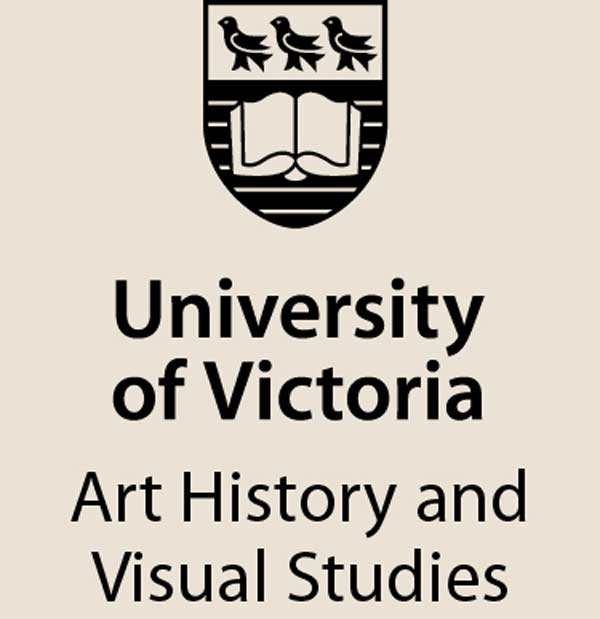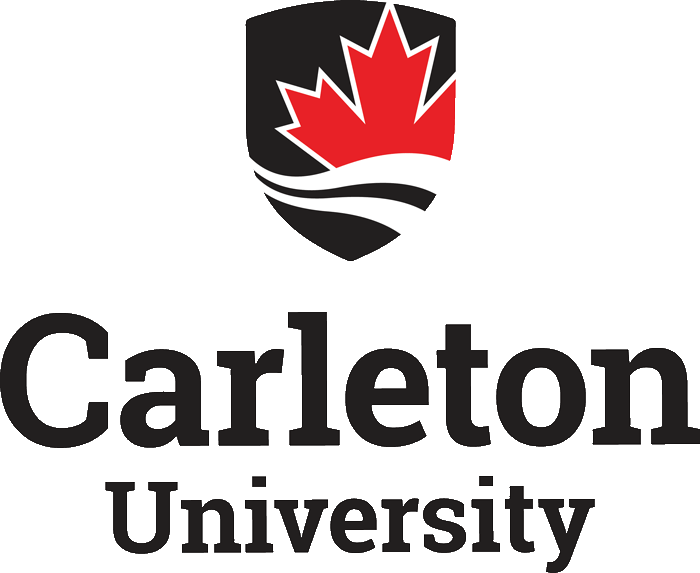H.7 Research-Creation Caucus Roundtable: Research-(care)ation
Sat Oct 21 / 15:30 – 17:15 / KC 206
chair /
- Marcel O’Gorman [as proxy for Stéfy McKnight], University of Waterloo
Since 2017, the UAAC Research-Creation Caucus has been hosting a series of roundtables that explore the needs of research-creationists across so called Canada. This year the topic of discussion is “research-(care)ation.” Research-(care)ation thinks about the generative ways that research-creation thinks, engages, and understands the world through methods of care, reciprocity and social justice. Perhaps most notable is its ability to care-fully interrogate and challenge institutions and western ways of knowing, through feminist, anti-colonial, and queer interventions of knowledge production. We are inviting proposals from research-creationists to share their work during a 7–10-minute presentation, that highlight how artistic research may act as an antidote for our current world. After the presentations, the floor will be open for more discussion about how we are engaging with this theme in our work and research.
keywords: research-creation, healing, care, art research, decolonization, disruption
session type: roundtable
Professor Marcel O’Gorman (he/him) is Founding Director of the Critical Media Lab, which supports research-creation projects that reflect on the impacts of technology on society and the more-thanhuman condition. O’Gorman’s most recent books, Necromedia (U of Minnesota Press) and Making Media Theory (Bloomsbury), mobilize philosophical reflections and research-creation practices toward an ongoing critique of power asymmetries in technocapitalism. O’Gorman has also reached non-academic audiences through The Atlantic, Slate, The Globe and Mail, and The Conversation, and he has an international portfolio of critical media installations and performances at venues ranging from the Tom Thomson Gallery and Propellor Gallery in Ontario to the Carnival of the Future in Phoenix, Arizona and Mediamatic in Amsterdam.
To Tend: Care as Practice and Subject
- Ruth Chambers, University of Regina
My recent body of work, titled Tend, reflects my ongoing commitment to care as a practice, as a method, and as an underlying subject. Through a process of direct observation, I make, in attentively crafted and faintly stained porcelain, portraits of specific bulbs and cut flowers that exist because I or another have tended to them. In this round table I will discuss how, by attending hyper-carefully to study, close observation, and skillful making, through a durational process of research-creation, I want to also invite careful looking from the viewer and to signify the value and meaningfulness of both a process of care and of overlooked and/or undervalued subject matter. In addition to discussing tending to a process of research-creation with great care as an antidote to our current world, I will discuss how working in alignment with the traditions of Still Life and of historical women botanical illustrators offers me further ways to reflect on, critique, and practice counter-agency in relation to, inter-related contemporary world concerns such as material consumption, neo-liberalism, and human relationships with the non-human.
keywords: care, botany, craft, porcelain sculpture
Visual Artist Ruth Chambers works primarily in ceramics and installation, often undertaking innovative approaches to ceramic sculpture. She has shown her work in exhibitions across Canada and internationally, including solo exhibitions at Koyegama Gallery in Tokoname, Japan, the Canadian Clay and Glass Gallery in Waterloo, Ontario, and the International Museum of Surgical Science in Chicago. Her most recent body of work, Tend, began at an artists' residency at the Guldagergaard International Ceramics Research Centre, Denmark, in 2018. She also publishes writings about contemporary craft and ceramics theory. She teaches at the University of Regina where she is Professor of Visual Arts and has also held positions of Department Head, Visual Arts, and Associate Dean, Faculty of Fine Arts. Chambers studied at Ontario College of Art and Design (AOCA), the University of Madison, Wisconsin (Visiting Student) and the University of Regina (MFA).
Reparations beyond the Techno-Fix: Salvaging Care and Repair from the Wreckage of Research-Creation
- Marcel O’Gorman, University of Waterloo
I’ve been haunted by a research-creation dream, a nightmare really. All of the interactive projects I’ve created over the past two decades – including a penny-farthing bicycle, a 16-foot canoe, and a handmade arcade cabinet – are packed in a UHaul truck that flies off a pier into the Detroit River. Years ago, I might have related this dream to Heidegger’s notion of sorge, an anxious sort of caring, an awareness of one’s finitude. I will even admit that some of my research-creation projects were inspired by this concept. In short, my dead projects are a source of angst, but not just because they’re technically obsolete.
These days, I avoid citing Heidegger at all, leaning instead toward a citational practice informed more by feminist and decolonial thinking than by a hut in Bavaria. This focus marks a radical shift in how I understand practices of care in research-creation. I have started asking questions. How were my projects informed by colonial thinking? Did they celebrate able-bodied masculinity? How do you decolonize an interactive canoe or transform an arcade machine into a cabinet of relational curiosity? Here is my modest proposal for the Caucus: If cared for properly, the wreckage of research-creation opens up opportunities for reparations of a different sort. And here my questions: What does it mean to care for the obsolete research-creation projects we’ve created? What do you do with objects-tothink-with that are beyond technical repair? How might the wreckage of research-creation become an archive of care and (nontechnical) repair?
keywords: research-creation, repair, relationality, media theory, critical design
Professor Marcel O’Gorman (he/him) is Founding Director of the Critical Media Lab, which supports research-creation projects that reflect on the impacts of technology on society and the more-thanhuman condition. O’Gorman’s most recent books, Necromedia (U of Minnesota Press) and Making Media Theory (Bloomsbury), mobilize philosophical reflections and research-creation practices toward an ongoing critique of power asymmetries in technocapitalism. O’Gorman has also reached non-academic audiences through The Atlantic, Slate, The Globe and Mail, and The Conversation, and he has an international portfolio of critical media installations and performances at venues ranging from the Tom Thomson Gallery and Propellor Gallery in Ontario to the Carnival of the Future in Phoenix, Arizona and Mediamatic in Amsterdam.
Epistemic Harm in the Name of Care? Trans*, Disabled and Anti-Colonial Directives for Research-(care)ation!
- naveed L. salek nejad, Concordia University
In her acclaimed book All About Love: New Visions, late feminist theorist bell hooks criticises how love is a widely used term but lacks a clear definition which enables abuse and violence in its name. Inspired by hooks' advocacy for conceptual clarity, this proposal questions whose definitions of care have become hegemonic in academic scholarship and their subsequent impact on research-(care)ation? Whereas Anglo-Saxon cis-gendered feminists have pioneered academic writing about care from the late 1970s onwards, they all too often sever their care-theories from the on-the-ground realities of trans*, disabled, and racialised groups. In fact, the development of institutionalised care facilities by settlers on Turtle Island was not only driven by carceral forms of control over trans* and disabled people but also coincided with the public education system abducting Indigenous children (Piepzna Samarasinha). To undo ‘Anglo-Saxon feminist theory’ (Namaste), whose definitions of care ought to be centred in research-(care)ation? Since contemporary discourses on care are enmeshed with discourses on decolonisation, I argue that research-(care)ation inherently must be configured as an anti-colonial practice. To reclaim aforementioned enmeshment, I argue that guiding principles for research-(care)ation could benefit from Eve Tuck’s ‘moratorium on damage-centred research’. By discussing my ongoing master’s research-(care)ation thesis, I weave together research-creation methods with writings on care by trans*, disabled, and Indigenous scholars (Spade, Piepzna-Samarasinha, TallBear). Ultimately, my goal is to articulate methodological directives for research-(care)ation that enable emancipatory knowledge production for the source communities of said care-practices.
keywords: arts-based methodologies, care, decoloniality, transgender studies, disability justice
naveed L. salek nejad, born to a polish mother and irani father in northern germany, is an artist, poet, and MA candidate at concordia university. they graduated cum laude from university college maastricht in 2020 with an interdisciplinary BA in artistic research, gender and postcolonial studies, and political sciences. following their passion for pedagogy, naveed completed an education fellowship at gropius bau in berlin in 2021, having worked in public programming and diversity-sensitive outreach work with migrant communities. subsequently, they became an uninvited guest on the unceded lands and waters of the Kanien’kehá:ka Nation to pursue their graduate studies in humanities investigating Poland’s entanglement with the global colonial power matrix. most recently, naveed was a research fellow at the centre for research on social memory in warsaw, reviewing how coloniality is reproduced and sometimes also challenged in polish museums.
Configuring Research-Creation as a Pedagogy of Caring Knowledge Production during COVID-19
- Jason Wang, Toronto Metropolitan University
The term "research-creation" encompasses two aspects: the creative expression of research and the use of creative methods as tools of discovery in the research process. In her book How to Make Art at the End of the World: A Manifesto for Research-Creation (2019), Natalie Loveless explains that research-creation serves the purpose of fostering a multifaceted and productive discourse, encouraging partnerships and collaborations across disciplines and forms, and challenging established notions (Loveless 59-60). Applying these insights to the COVID-19 pandemic, where traditional in-person events and hands-on learning faced significant challenges, we explore research- creation as a form of caring knowledge production. Taking the Modern Literature and Culture (MLC) Research Centre at Toronto Metropolitan University as our exemplar, we focus on the MLC Pandemic Webinar Series, which serves as a case study. This online forum adopts a salonesque format and explores creative projects related to fashion, office design, and comics creation, among others. Additionally, we consider the series as a space for using research creation projects as tools of knowledge production beyond institutional frameworks and integrating them within virtual platforms. Ultimately, research-creation during the COVID-19 crisis has offered a unique opportunity for transformative learning experiences that transcend disciplinary boundaries while fostering a community for caring knowledge production.
keywords: research-creation, COVID-19, pedagogy, knowledge production
Jason Wang is a Postdoctoral Fellow and Executive Member at the Modern Literature and Culture Research Centre at Toronto Metropolitan University. His research explores the cultural and aesthetic dimensions of power, politics, and social values in modern art, literature, and media. With Gammel, he is the co-editor of Creative Resilience and COVID-19: Figuring the Everyday in a Pandemic (Routledge, 2022). He is completing his monograph Walking the City: Walking as a Cultural and Spatial Practice in the Modern Metropolis.


